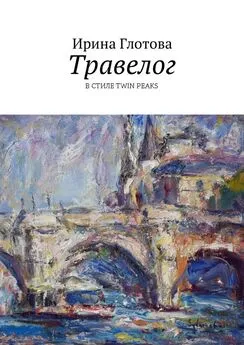Peake, Mervyn - 02 Gormenghast
- Название:02 Gormenghast
- Автор:
- Жанр:
- Издательство:неизвестно
- Год:неизвестен
- ISBN:нет данных
- Рейтинг:
- Избранное:Добавить в избранное
-
Отзывы:
-
Ваша оценка:
Peake, Mervyn - 02 Gormenghast краткое содержание
02 Gormenghast - читать онлайн бесплатно полную версию (весь текст целиком)
Интервал:
Закладка:
'I will never forget,' he said, 'to always call you by your proper name, and in a very proper tone of voice, Lady Fuchsia.'
Fuchsia smiled vaguely, but she was thinking of something else.
'You are certainly one for climbing,' she said at last. 'You climbed to my attic - do you remember?'
Steerpike nodded.
'And you climbed up the library wall when it was burning. It seems very long ago.'
'And the time, if I may say so, Lady Fuchsia, when I climbed through the thunderstorm and over the rocks with you in my arms.'
It was as though all the air had been suddenly drawn from the room, so deathly silent and thin had the atmosphere become. Steerpike thought he could detect the faintest tinge of colour on Fuchsia's cheekbones.
At last he said: 'One day, Lady Fuchsia, will you explore with me the roofs of this great house of yours? I would like to show you what I have found, away to the south, your Ladyship, where the granite domes are elbow-deep in moss.'
'Yes,' she replied, 'yes...' His sharp, pallid face repelled her, but she was attracted by his vitality and air of secrecy.
She was about to ask him to leave, but he was on his feet before she could speak and had jumped through the window without touching its frame, and was swinging to and fro on the jerking rope before he started swarming it, hand over hand, on his long, upward climb to the ragged roof above.
When Fuchsia turned from the window she found upon her rough dressing-table a single rosebud.
As he climbed Steerpike remembered how the day of Titus' birth seven years previously had seen the commencement of his climb across the roofs of Gormenghast and the end of his servitude in Swelter's kitchen. The muscular effort required accentuated the hunching of his shoulders. But he was preternaturally nimble and revelled no less in physical than in mental tenacity and daring. His penetrating close-set eyes were fixed upon that point to which his rope was knotted as though it were the zenith of his fancy.
The sky had darkened, and with the rising of a swift wind came the driven rain. It hissed and spouted in the masonry. It found a hundred natural conduits where it slid. Air-shafts, flues and blowholes coughed with echoes, and huge flumes muttered. Lakes formed among the roofs, where they reflected the sky as though they had been there forever like waters in the mountains.
With the rope neatly coiled about his waist, Steerpike ran like a shadow across an acre of sloping slates. His collar was turned up. His white face was bearded with the rain.
High, sinister walls, like the walls of wharves, or dungeons for the damned, lifted into the watery air or swept in prodigious arcs of ruthless stone. Lost in the flying clouds the craggy summits of Gormenghast were wild with straining hair - the hanks of the drenched rock-weed. Buttresses and outcrops of unrecognizable masonry loomed over Steerpike's head like the hulks of mouldering ships, or stranded monsters whose streaming mouths and brows were the sardonic work of a thousand tempests. Roof after roof of every gradient rose or slid away before his eyes; terrace after terrace shone dimly below him through the rain, their long-forgotten flagstones dancing and hissing with the downpour.
A world of shapes fled past him, for he was as fleet as a cat and he ran without pause, turning now this way, now that, and only slackening his pace when some more than normally hazardous cat-walk compelled. From time to time as he ran he leaped into the air as though from excess of vitality. Suddenly, as he rounded a chimney-stack, black with dripping ivy, he dropped to walking-pace and then, ducking his head beneath an arch, he fell to his knees and hauled up, with a grating of hinges, a long-forgotten skylight. In a moment he was through and had dropped into a small empty room twelve feet beneath. It was very dark. Steerpike uncoiled himself of the rope and looped it over a nail in the wall. Then he glanced around the dark room. The walls were covered with glass-fronted showcases, filled with every kind of moth. Long thin pins impaled these insects to the cork lining of each box, but careful as the original collector must have been in his handling and mounting of the delicate things, yet time had told, and there was not a case without its damaged moth, and the floors of most of the little boxes smouldered with fallen wings.
Steerpike turned to the door, listening a moment, and then opened it. He had before him a dusty landing, and immediately on his left a ladder leading down to yet another empty room, as forlorn as the one he had just left. There was nothing in it except a great pyramidal stack of nibbled books, its dark interstices alive with the nests of mice. There was no door to this room, but a length of sacking hung limply over a fissure in the wall, which was broad enough for Steerpike to negotiate, moving sideways. Again there were stairs, and again there was a room, but longer this time, a kind of gallery. At its far end stood a stuffed stag, its shoulders white with dust.
As he crossed the room he saw through the corner of his eye, and framed by a glass-less window, the sinister outline of Gormenghast mountain, its high crags gleaming against a flying sky. The rain streamed through the window and splashed on the boards, so that little beads of dust ran to and fro on the floor like globules of mercury.
Reaching the double door, he ran his hands through his dripping hair and turned down the collar of his coat; and then, passing through and veering to the left, followed a corridor for some way before he reached a stairhead.
No sooner had he peered over the banisters than he started back, for the Countess of Groan was passing through the lamp-lit room below. She seemed to be wading in white froth, and the hollow rooms behind Steerpike reverberated with a dull throbbing, a multitudinous sound, the echo of the genuine ululation which he could not hear, the droning of the cats. They passed from the hall below like the ebbing of a white tide through the mouth of a cave, at its centre, a rock that moved with them, crowned with red seaweed.
The echoes died. The silence was like a stretched sheet. Steerpike descended rapidly to the room below and made to the east.
The Countess walked with her head bowed a little and her arms akimbo. There was a frown on her brow. She was not satisfied that the immemorial sense of duty and observance was universally held sacrosanct in the wide network of the castle. Heavy and abstracted as she seemed, yet she was as quick as a snake to detect danger, and though she could not put a finger, as it were, on the exact area of her doubt, she was nevertheless suspicious, wary and revengeful of she knew not exactly what.
She was turning over all the fragments of knowledge which might relate to the mysterious burning of her late husband's library, to his disappearance and to the disappearance of his chef. She was using almost for the first time, a naturally powerful brain - a brain that had been purred to sleep for so long by her white cats that it was difficult at first for her to awaken it.
She was on her way to the Doctor's house. She had not visited him for several years, and on the last occasion it was only to have him attend to the broken wing of a wild swan. He had always irritated her, but against her own inclination she had always felt a certain peculiar confidence in him.
As she descended a long flight of stone stairs, the undulating tide at her feet had become a cascade in slow motion. At the foot of the stairs she stopped.
'Keep... close... keep... close... together,' she said aloud, using her words like stepping-stones - a noticeable gap between each, which in spite of the depth and huskiness of her voice had something childlike in its effect.
The cats were gone. She stood on solid earth again. The rain thrummed outside a leaded window. She walked slowly to the door that opened upon a line of cloisters. Through the arches she saw the Doctor's house on the far side of a quadrangle. Walking out into the rain as though it were not there, she moved through the downpour with a monumental and unhurried measure, her big head lifted.
SIX
I
Prunesquallor was in his study. He called it his 'study'. To his sister, Irma, it was a room in which her brother barricaded himself whenever she wished to talk to him about anything important. Once within and the door locked, the chain up and the windows bolted, there was very little she could do save beat upon the door.
This evening Irma had been more tiresome than ever. What was it, she had inquired, over and over again, which prevented her from meeting someone who could appreciate and admire her? She did not want him, this hypothetical admirer, necessarily to dedicate his 'whole' life to her, for a man must have his work - (as long as it didn't take too long) - mustn't he? But if he was wealthy and 'wished' to dedicate his life to her - well, she wouldn't make promises, but would give the proposal a fair hearing. She had her long, unblemished neck. Her bosom was flat, it was true, and so were her feet, but after all a woman can't leave everything. 'I 'move' well, don't I, Alfred?' she had cried in a sudden passion. 'I say. I 'move' well?'
Her brother, whose long pink face had been propped on his long white hand, raised his eyes from the tablecloth on which he had been drawing the skeleton of an ostrich. His mouth opened automatically into something that had more of a yawn than a smile about it, but a great many teeth were flashed. His smooth jaws came together again, and as he looked at his sister he pondered for the thousandth time upon the maddening coincidence of being saddled with such a sister. It being the thousandth time, he was well practised, and his ponder lasted no more than a couple of rueful seconds. But in those seconds he saw again the stark idiocy of her thin, lipless mouth, the twitching fatuity of the skin under her eyes, the roaring repression that could do no more than bleat through her voice; the smooth, blank forehead (from which the coarse, luxuriant masses of her iron-grey hair were strained back over her cranium, to meet in the compact huddle of a bun as hard as a boulder) - that forehead which was like the smoothly plastered front of an empty house, deserted save by the ghost of a bird-like tenant which hopped about in the dust and preened its feathers in front of tarnished mirrors.
'Lord! Lord!' he thought, 'why, out of all the globe's creatures, should I, innocent of murder, be punished in this way?'
He grinned again. This time there was nothing of the yawn left in the process. His jaws opened out like a crocodile's. How could any human head contain such terrible and dazzling teeth? It was a brand-new graveyard. But oh! how anonymous it was. Not a headstone chiselled with the owner's name. Had they died in battle, these nameless, dateless, dental dead, whose memorials, when the jaws opened, gleamed in the sunlight, and when the jaws met again rubbed shoulders in the night, scraping an ever closer acquaintance as the years rolled by? Prunesquallor had smiled. For he had found relief in the notion that there were several worse things imaginable than being saddled with his sister metaphorically, and one of them was that he should have been saddled with her in all its literal horror. For his imagination had caught a startlingly vivid glimpse of her upon his back, her flat feet in the stirrups, her heels digging into his flanks as, careering round the table on all fours with the bit in his mouth and with his haunches being cross-hatched with the flicks of her whip, he galloped his miserable life away.
'When I ask you a question, Alfred - I say when I ask you a question, Alfred, I like to think that you can be civil enough, even if you 'are' my brother, to answer me instead of smirking to yourself.'
Читать дальшеИнтервал:
Закладка:



